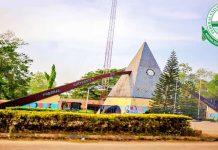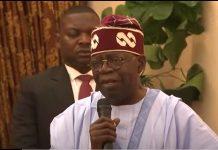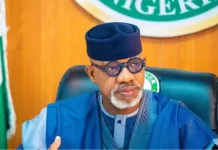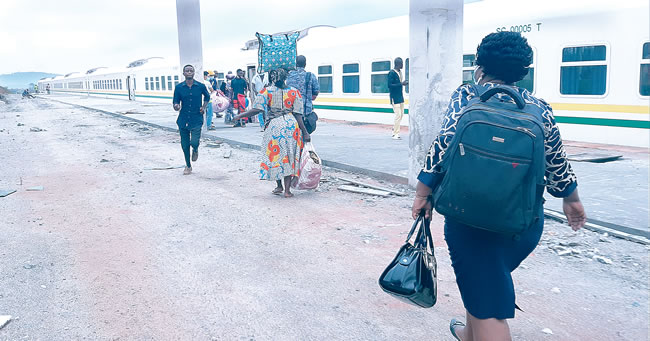
The Lagos-Ibadan railway was inaugurated recently for a full paid operation by the Nigerian Railway Corporation after about a year of free test-run. JUSTICE NWAFOR joined the train to and fro Lagos from Ibadan and tells his experience in this report.
The morning brightness had barely killed the dying darkness of the night when I set out for the Ibadan station of the Lagos-Ibadan train service. The time was exactly 6am. Well over a week earlier, the news of the commencement of the train service operated by the Nigeria Railway Corporation (NRC) had filtered into town. Hopes were high. The hype was expected. The hiss? Well, that was one of the things I wanted to find out. Sincerely, it wouldn’t be fair to omit the beauty. So, I also wanted to find out if the beauty was still intact. Above all, I wanted to have my third and fourth train ride.
The first and second rides were to and fro Lagos from Ibadan about a year ago when the Minister of Transportation, Rotimi Amaechi directed the NRC to commence free trips on the railway from November 30, 2019, to March 31, 2020. Then, there were concerns that the tracks and stations were not fully ready. This unreadiness. Has anything changed?
The previous day, I had called the Public Relations Officer (PRO) of the NRC, western operations, Calistus Unyinmadu to find out the actual takeoff point of the train and if I could purchase the ticket online. Having had a terrible experience a year ago — which I chronicled here — locating the takeoff point, I wanted to be very sure and not take any chances. When he told me “the tickets are not yet online”, I almost asked “why exactly are you guys commencing full paid operations” but was held back by what or who I am yet to decipher.
“The station is at Moniya”, he said. Moniya again? I hope I’d not be redirected to Ologuneru again like I was last year? And the dusty road? I hope the Moniya-Iseyin road has been fixed? These questions were not asked but they reverberated through my head while he spoke.
As I prepared to leave that morning, I was not prepared to take chances. So I wore a brown shoe, a black jean trouser and a brown Ralph Lauren long sleeve shirt and a black face cap. In my backpack, I had a brown handkerchief. I was ready for the dust. Bring it on!
About an hour and 15 minutes later, I arrived at the Moniya station. Don’t worry, I didn’t have to use the handkerchief and my eyebrows were not dusty. The Oyo state government has fixed the road a little up to the railway tracks — I wouldn’t know if the rehabilitation continued beyond the tracks to Iseyin.
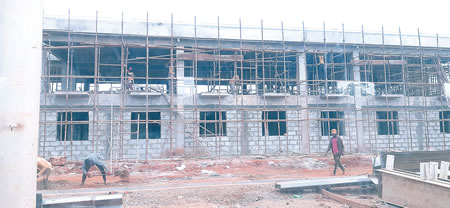
Courteous NRC staff
As I alighted from the motorcycle which I boarded from Ojoo axis of the town, a staff of the NRC donning a green attire with yellow stripes approached me: “Good morning sir; are you travelling to Lagos?” The polite young man asked with a smile. “Good morning; yes, I am. Please where do I get the ticket”, I asked, returning the smile. “There, sir”, he said, pointing towards a large, yellow metal container. Surprised, I walked towards the container hoping to meet what my eyes couldn’t see.
About five steps later, a set of white plastic chairs with a number of people (who I would later connect with as fellow passengers in the train) appeared behind the container. Before them were three female NRC staff seated behind plastic tables with tickets and wands of naira notes on them. A brisk man would direct me to the first lady who demanded a means of identification — thankfully, I had my work ID and of course my facemask — without which a passenger wouldn’t be attended to. Any kind of ID and face cover would be accepted. Let’s not forget that Covid-19 is still very much around.
She copied down my details from the ID while the second lady demanded for the fare. I asked for the price and was shown a prepared list on the table. Against earlier information, the economy cabin would cost N2500 instead of N3000. So, I went for it. The business class and first class cabins would cost N5000 and N6000, respectively.
In a few minutes I was handed a ticket and was directed to sit. At 7:35am, we were directed to embark. At the entry point, everything was orderly: passengers queued up without being asked to; temperatures were taken and officials of the Nigeria Security and Civil Defence Corps stood close to the coaches with their rifle noozles facing the cemented floor. NRC staff who checked for tickets enroute the train were so courteous, beaming smiles as they greeted.
Yes, it was morning but the air that greeted me, a few steps into the cabin, was different: chilling and embracing. “The settings are now different”, I thought. A year ago, what I and a handful of others had for free is now the first class service. The economy cabin didn’t have a tray table which could hold a tablet or a laptop; a cup of coffee or tea as the business class does but has well built adjustable chairs with green coverings. The two columns of seats, in twos and threes, were of the same size. The windows had clean, blue, adjustable curtains.
The floor was neat and the entire train was well lit — I would later find out it looked more beautiful at night. There was a Close Circuit Camera and a HD monitor which displayed a certain cartoon, series of chinese documentaries with English subtitles and a number of adverts and music videos.
There is a restroom, clean and compact, though the flusher didn’t work enroute Lagos. I would later find it fixed during the return trip. The handwashing area is quite spacious with the taps running. Everything worked well apart from the seating arrangement.
My ticket number was 21, so I located the seat immediately I walked in. I liked it because it was close to the window. Almost immediately, the passenger with ticket number 20 — a woman visibly in her late 50s with two bags which eventually decorated my head with sand as she placed them on the overhead load cabins — walked in and sat next to me.
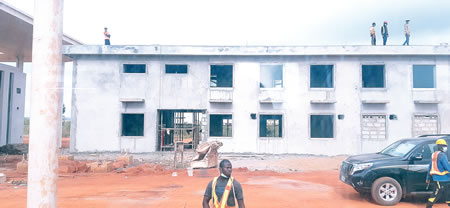
About seven minutes later, she left to occupy another seat close to the window after a female hostess announced that anyone could sit on any seat not minding the seat number to observe the Covid-19 social distance protocol. She, however, said it would stop when more passengers begin to board the train. Not long, a woman who sat on the row beside mine asked her two daughters to relocate so she could get enough space to sleep when the train moved. She fulfilled her words: less than 30 minutes into the journey, she laid comfortably on the seats and dozed off. The sound from the video being shown on the monitor wouldn’t let us know if she snored.
At 7:50am, a female hostess’ voice blared from the invisible audio speakers in the train and announced that the journey would commence in 10 minutes. After seven minutes she announced again that the train would leave “any moment from now” and instructed that facemasks must be worn. The passengers wore them but on the chins. At exactly 8am, the train moved enroute Lagos.
Billion-dollar project
The 156.65-kilometre standard rail gauge is one project that had lingered. First awarded as part of a railway network project by the then Olusegun Obasanjo administration to China Civil Engineering Construction Company (CCECC) — Chinese state-owned enterprise — at the cost of $8.3 billion in 2006, but was not executed.
The Goodluck Jonathan administration in 2012 signed a memorandum of understanding with the same firm for the execution of the project. This time, the cost of the project was pegged at $1.53 billion, and financed by China Export-Import (EXIM) Bank, under concessional loan terms.
After the Muhammadu Buhari government was inaugurated in May 2015, it made its intention of developing the country’s railway network known. On March 7, 2017, the then acting president, Yemi Osinbajo, inaugurated the construction of the project in Lagos. It was expected to be completed in December 2018.
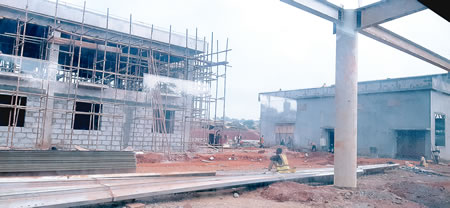
In March 2018, when the Federal Government, represented by the Minister of Information and Culture, Lai Mohammed, met with the CCECC, it expressed hopes that the project would be completed in December 2018. Mr Mohammed had enthused: “On today’s meeting, what we have achieved is that the December date for the Lagos-Ibadan standard gauge is non-negotiable. I am happy to say that both contractors and consultants have promised their commitments to meet the deadline. The challenges raised are surmountable and these are what we reviewed in the meeting”. But it failed, like it did in 2006.
The project was one of the many campaign promises of President Buhari during the 2019 presidential election campaign. Promises were made that in a few months, it would be ready. Is it fully ready?
No station ready yet
One striking thing about the 156.65-kilometre journey is, not even a station was found to be ready. When I got to the Ibadan station (Moniya), I hoped to see a railway station with modern facilities fully built. But no. However, work was in progress: a handful of Chinese and Nigerian engineers were seen as early as I got to the station. From what I saw, the facility is likely not to be ready this year. The earliest could be the first quarter of next year. What this means is, passengers would continue to buy tickets in an open space with no roof. I hope we’ve not forgotten that we’ve had a couple of heavy rains this month. If such happens before 8am, which I don’t pray for, the situation would be a huge mess. Did you just say they could run into the uncompleted station? With iron bars and construction equipment there, right? Or sell the ticket right inside the train? No. Lets not pray for rain.
20 minutes later, we arrived at Omi-Ado station. The hostess informed passengers that it was not a “stop station for now”. As in Moniya, the Omi-Ado station had tall pillars, iron bars and building construction equipment with workers spluttered all around. Work was in progress. One significant thing is, the level of work has really progressed compared to what it was last year.
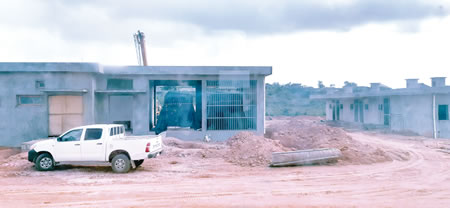
The train reached Olodo station at 8:38am. Just like others, the station was still under construction.
Now, the number of passengers taking selfies had reduced just like the number of people making video calls. It was like an unwritten rule, after having a seat, the next was to have a selfie then later make video calls with the ‘is this really in Nigeria’ kind of facial expression.
Remember the elderly woman who was meant to sit next to me? She eventually sat opposite a fellow mother who she engaged in a conversation with. They chatted till the train got to Lagos, standing. Yes, they stood as they chatted. I wasn’t able to understand clearly the meat of the conversation because it was steep in Yoruba language which I’m yet to have a full grasp of. But they looked happy and smiled all through the journey.
Abeokuta passengers alighted as it arrived at 9am. This was the only stop station. Abeokuta station, I think, is the biggest, next to the new Ebute-Metta station. But it is still under construction. At 9:05, it continued and arrived at Papalanto at 9:34 am.
It got to Kajola station at 9:45am, Agbado station at 10:09 am, Agege station at 10:22 am and Lagos station (Ebute-Metta) at 10:45am. The journey took two hours and 45 minutes from Ibadan to Lagos as against the advertised two hours.
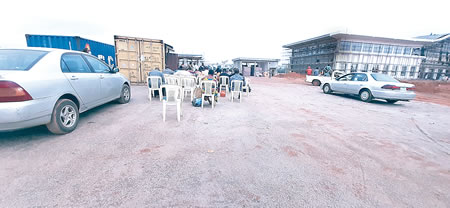
Convenience over cost
A young man who sat behind me en-route Ibadan raised the issue of insecurity in the country and why he’d be happy to pay even more for the train instead of using the Lagos-Ibadan road. Another countered, saying the train fare was high and most Nigerians can’t afford it. He reminded us that with N1500 one could get to Lagos from Challenge or Iwo road axis of Ibadan.
Well, I added that in the N1500 bus you wouldn’t have a HD monitor showing you music videos and documentaries, no adjustable and comfortable chair, no air conditioner. You would still not have a good overhead load cabin, no clean floor. Again you wouldn’t have a clean toilet with tissue paper available. No hand washing facility. No legroom.
We also reminded ourselves that you could spend more than five hours on the road, especially when the traffic situation at Ibafo and Mowe gets really crazy and that on the train, the departure and arrival times are assured. The potholes on the road and constant galloping could cause the healthiest of persons head and body aches, a lady, who in my estimation, has had more than 20 selfies since the journey started, quipped.
Now to the young man’s point: insecurity. Yes, there might have been no or little reported cases of attacks on the road, but with the way insecurity is spreading all round the country, who knows.
Even with these points, there was no consensus: some said the convenience is worth the cost while others insisted the fare was too high for the average Nigerian. What I said? I had once spent about seven hours on the Lagos to Ibadan road. Maybe I should add that I missed an important appointment that day.
Yes, it was a round trip. By 3:32 pm I returned to Ebute-Metta station, booked my ticket and headed for the train. The routine was the same. At 4pm the train departed, enroute Ibadan. Less than 20 minutes into the journey, the unexpected happened: a truck broke down on the level crossing. The train had to stop and our journey was delayed for about 45 minutes. While efforts were made to take the broken truck off the track, a female hostess apologised every 10 minutes.
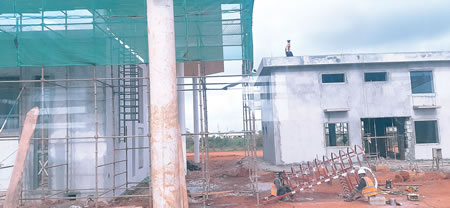
The downtime offered many passengers time to take selfies and videos and make loud calls informing whosoever they called that “I’m in the train now”.
As the journey resumed, I buried myself in Maya Angelou’s ‘I know Why the Caged Bird Sings’. At 7:30pm, we arrived at Ibadan station (Moniya) to meet exploitative cab drivers who raised the average fares by more than 300 per cent.
The non-centrality of the Moniya station could be a huge problem. For instance, I spent about N500 to get to the train station from a central location in Ibadan. The convenience covers the cost, right? Well, someone, like Mr. Kayode who I shared the cab which moved us, alongside two others with, from the station to Ojoo, does not think so.
Sorry, I forgot to tell you that the train looked more beautiful at night: the internal lighting and cool air beaming from the clean roof could remind you of anything good you’d want to remember.
As we disembarked, the female hostess thanked us for using the NRC train service and asked if we enjoyed the ride. Before she could finish asking, a woman who I had barely noticed during the trip screamed, “yes we did”. Then others joined, though not in a tone as high as hers, and the rest nodded in agreement. Did I say or nod? Perhaps I should have done one.
Kindly contact us @ Naijalivetv@gmail.com
Call or Whatsapp: 07035262029, 07016666694, 08129340000


